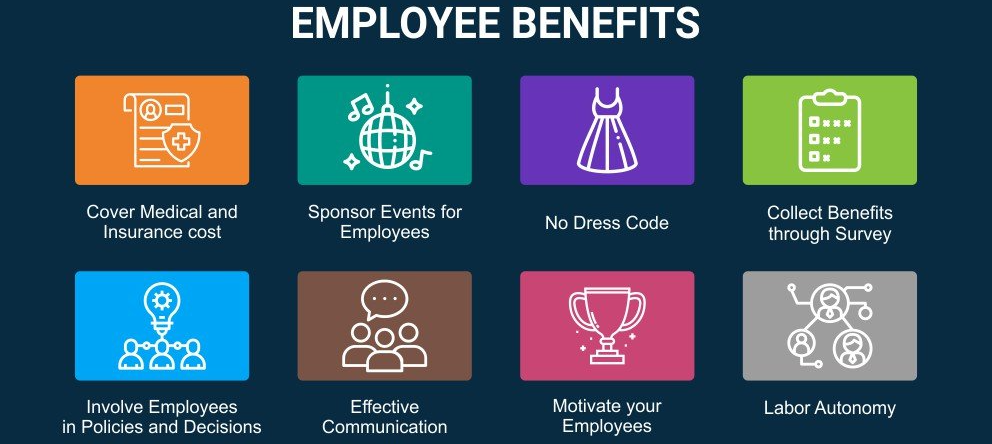Beyond Salary - Attracting Talent in a Talent Short Market
We've seen the great resignation, the great reflection, and the four-day week. Now it's time to reflect on salaries and benefits. Many employers are failing to attract and retain employees. Why? Currently, salary expectations are wildly inflated, so much so that entry-level workers that would once have attracted salaries around AU$65,000 are now demanding AU$100,000. This increase significantly affects small to medium-sized businesses that cannot meet these demands. Businesses have to get creative and offer more than just the basic salary and superannuation.

Strong retention, engagement, respect, and a competitive salary are essential to keeping your employees happy. It's cost-effective to keep high-performing workers and offer a compensation package to attract the best talent; it's better for your brand perception and the overall happiness of your team. Businesses need to start attracting employees by offering them creative compensation such as a nine-day fortnight, days off for birthdays, healthcare, gym membership and meal tickets. Careers for Purpose has looked at some of the most creative ways firms attract, secure, and keep hold of new talent.
Unpaid days off
The emerging workforce places a premium on flexibility and the ability to manage their own schedule to enjoy time with friends and family and find a healthy work-life balance. Many large firms are already offering unpaid days off to attract workers who might need additional time away on top of their annual vacation allowances.
Individual attention
Every employee wants to be part of a successful company and feel appreciated, recognised and encouraged. To retain employees, you can encourage their growth and development. As a small or medium-sized company, employers will be more likely to have better opportunities to understand their employees and help them achieve their professional goals.
Training goals
The value placed on personal development is high. One significant factor for employees leaving their current roles is that they feel that there is no opportunity for them to develop. Training opportunities can be a balance of personal and corporate learning. When an employee or potential recruit understands that your company wants them to grow and will invest in this commitment, it could be the differentiator between accepting the job or not.
Creative incentives
To encourage longevity of service and recognise employees for their commitment, why not consider offering complimentary paid leave for staying with the company for three, five, or ten years? For example, you could offer one month of paid leave after five years of service plus spending money as a one off recognition reward.
Purposeful employment
It's well-known that volunteering is good for an individual's well-being. By addressing the company's mission or purpose, you can encourage employees to participate in a local, national or international cause that can positively impact society. Many organisations give 2 days or more leave per year to perform volunteer work.
Remote work
The global pandemic has highlighted the popularity and success of remote working. There are all sorts of benefits for the employee, including a better work-life balance, less commute stress, the ability to save money, a positive impact on sustainability and the environment, and location independence.
Life insurance
Life insurance is an excellent, relatively low-cost premium that shows employees that as an employer, you care. This covers the death of an employee, but it ensures that their family are secure in the future. Companies have reduced overheads considerably and pass on the benefits directly to their employees. Many insurance policies include nutrition and fitness programmes, counselling, physiotherapy resources and digital GP appointments.
Student loan repayment
More and more importance is being put on earning a degree. Unfortunately, that can go hand-in-hand with large loans and financial burdens looming over employees for decades. It makes sense that employers pay back the loans on the employee's behalf by deducting payments from their salaries.
Identity theft
The latest figures for identity theft are staggering. In the US, over a third of the population, 15 million people, were victims of identity theft last year, which cost over $16 billion. Offering identity theft protection to your employees gives them peace of mind. It proactively covers them if your company ever faces a data breach. It offers emotional and financial security that employees need to maintain productivity in the workplace.
Learning new skills
Offering employees time to complete learning projects during their working hours benefits them and your company. Perhaps your employee wants to learn more about basic coding, a foreign language, digital literacy or data analysis. Whilst these learnings might not be directly related to their jobs; they could be advantageous in the future.
Ask them what they want
To be ahead of the game and before you start offering benefits, you can find out what your employees would like to have by sending them an anonymous company-wide survey. Ensure that the benefit aligns with your company culture. It will give you a great understanding of what will appeal to your current employees and also attract new talent to your company.



